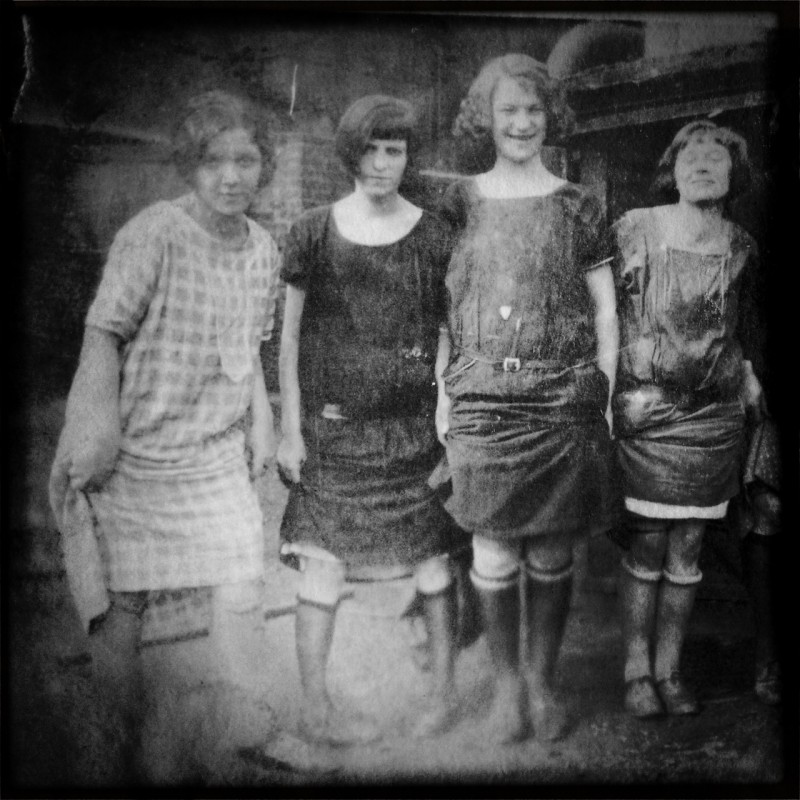Hail To The Print! Joni Kabana
Do we ever stop to linger over something anymore?
At times, I even find it difficult to read a book, my mind is so adept at processing information in an “overview” manner.
Last week, I found myself standing in a small pioneer museum in the town of Spray, Oregon, population 160. As I moved past old army uniforms and high laced women’s shoes, I saw a bookshelf full of photographs. Old photographs always tug at my heart, and I could get lost in them for weeks, wondering who the scared little boy is with the matted down hair wearing pressed shirts and shorts. Was he forced into this photo by the hand of his mama? Was his papa around that day or was he working in the fields? Who is the person off to the left who moved into the slow shutter speed frame, causing a ghost to appear? I make up stories and alter them as I discover a new element in the photo, such as a torn sock or the pattern of the wall paper or a sister who is holding his hand.
This time was no different as I perused those photos. Except my heart was stirred by something more, something outside of these vintage photos.
I felt a sense of loss for our digital culture. Will we leave behind photos such as these so that others will wonder about us long after we have passed? Will our great-grandchildren find a box of photos and ask about Uncle Ben or our dog Toasty?
In all of the photography classes I teach, I end the class by saying “Print your photographs.”
The Prints For Prints project was created out of a desire to give photographic prints of elders to families in rural Ethiopia. Most of these families have never had a photograph of their families, and when I am there photographing on assignment, I see in their faces how much they appreciate being “recorded” on my camera. I always leave wishing I could leave behind a print for them.
Now I can. This November, a small team and I will be setting up makeshift photo studios and printing images of loved ones for families in small Ethiopian villages. We are able to do this because of the generous donations of beautiful prints from photographers all over the world. These photographs will be auctioned at an event and all proceeds will go toward the printers, paper, ink and in-country costs of translators.
Each photographer will be paired up with one local Ethiopian student who would like to learn more about photography, so there will be an exchange of technical skills as well as the building of one-to-one cultural awareness.
The response to this project has been overwhelming. Nike Foundation and Global Press Institute will be selecting Ethiopian journalists from their programs to work with us. The photographers who have signed up to go (and are paying their own way) are excited beyond reason. The donating photographers have been generous and quick to sign on. There have been requests to do this in small rural towns in places such as Alaska and Darjeeling.
Perhaps we all do value print, more than we realize. To all of our laid off newspaper photographers, we salute you. Your talent is immeasurable, and just because we have funneled everything into the digital drain, I believe there is a deep resounding appreciation for holding a faded photograph in our hands. Or even a newspaper.
The faces of our ancestors may be imprinted in our imaginations, but I can’t think of anything more celebratory of a human life than the lasting effects of a printed portrait.
I quit my comfortable corporate job to pursue a full time career in photography after watching countless people run into their homes to retrieve one thing after Katrina hit New Orleans: precious family photos. This same revere for the photographic print occurs over and over during fires, storms and other natural disasters.
So today I urge each of you to consider this, now, before the next fleeting thing crosses your mind: Print your photographs.
Joni Kabana, Portland, Oregon, USA
